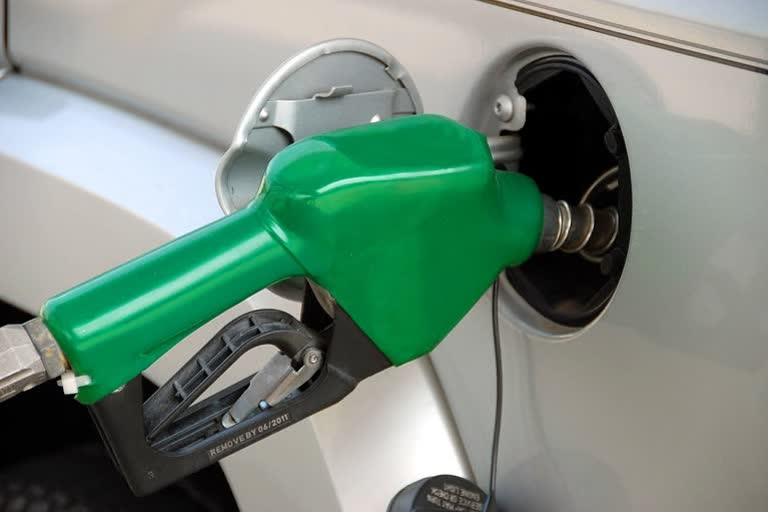Hyderabad: Racing like a horse without leashes, the prices of petrol and diesel have reached their unprecedented high, sending shockwaves among consumers. The highest price of diesel in the country is at Hyderabad, where it has peaked to Rs 83 per litre. In Mumbai and Jaipur, the price of petrol has crossed the record level of Rs 90 per litre. The price of premium petrol in Rajasthan is more than Rs 100 per litre.
In October 2018, when the price of petrol was Rs 80 per litre and the price of diesel stood at Rs 75 a litre, the crude oil rate in the international market was 80 US Dollars per barrel. About a year ago the price of a barrel of crude oil was 70 Dollars and it fell by 50 per cent within a span of three months. Today the price of crude oil is 55 Dollars, yet the domestic retail price of petroleum fuels has reached a record high. Ironically, the fuel consumers in the country did not get any benefit from the fall in the international crude oil price to its lowest level. Consumers have been made to face the heat of price rise every now and then in the name of adjusting the prices in accordance with the international market fluctuations.
On the other hand, Union Minister Dharmendra Pradhan is putting forth a strange justification for the petrol price rise. According to him, the price rise was a result of the failure of Oil Producing and Exporting Countries (OPEC) to fulfil their promise to supply at a rational price. He has further stated that OPEC faced a crisis situation in April last when the oil demand had drastically fallen in April last. India rescued OPEC by continuing to import fuel in spite of a fall in local demand. The organization had promised to supply oil for a rational price as a consideration for this support, the minister said. The crux of the minister’s argument is that OPEC failed to fulfil its word, as a result of which the petrol prices are rocketing sky high.
Irrespective of whether the international prices are rising or falling, the governments here are hiking the petroleum prices and are also imposing additional cess on the prices. Does this not amount to the loot of people with impunity?
India’s petroleum prices are the highest in South Asia. Both the State and Central governments are contributing to this as they both impose taxes on petroleum fuels. Earlier, the Rangarajan Committee had stated that the taxes imposed by the governments amounted to 56 per cent of petrol price and 36 per cent of the diesel rate at that time. According to the latest data, the government impositions on petrol prices stood at 67 per cent of the petrol price and 61 per cent of the price of diesel. Statistics reveal the fact that the Central government’s income from the fuel sector doubled between 2015 and 2020, while there has been a 38 per cent expansion in the income of State governments from the same sector.
Also read: Hike in fuel prices hit pause for 3rd day
The Controller General of Accounts (CGA) has revealed that even during the Coronavirus pandemic when petrol utilization had considerably fallen, the central government’s revenue from the petroleum sector was on the rise. Fuel is the life source for the rejuvenation of the country’s sagging economy. Petroleum is the essentiality for the restoration of people’s economic activities also. That is why it is demanded that all the petroleum fuels, including LPG and Kerosene, should be brought under the purview of GST so that their prices are under control. It is estimated that if the taxes imposed by the Central and State governments are exempted, we can get petrol for Rs 30 a litre.
In the backdrop of such estimations, the Central and State governments should make sure that the tax impositions on fuels remain at an optimal level. Even if the international fuel prices rise beyond expectations, the imposition of taxes on the fuel prices should be kept low to preserve the long term interests of the country. Already the lives of the people are ruined by the pandemic. By refraining from further impositions on petroleum prices, the Central and State governments can spare people’s lives from becoming worse.



